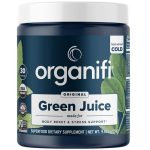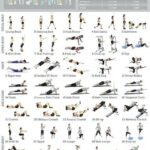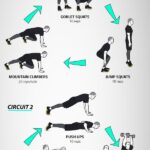Many people report that they feel nauseous when working out on an empty stomach. In fact, it is not uncommon to experience nausea when you workout on an empty stomach. This is because the body is trying to digest food that is not there, and the stomach can become very upset. It is known that pre-workout supplements are plotted to give you an extra edge when working out. They typically contain ingredients like caffeine and Creatine, which can help to improve your performance. However, these supplements can also cause nausea, especially if you take them on an empty stomach.

Why pre workout can cause nausea?
- Although it’s natural to feel nauseous after exercising, it’s not pleasant. However, most cases of exercise-induced nausea are harmless and do not warrant concern. Some of the reasons why people experience this condition include working out too hard, not warming up correctly as well as eating the wrong types of foods before exercising.
- Another reason why exercise can cause nausea is dehydration. It usually happens when you do not drink enough water before, during, and after an intense workout. When you’re dehydrated, your body will no longer have the nutrients it needs to function correctly. This condition can lead to nausea and dizziness, and in extreme cases, it can lead to falling, which may cause injuries to other people. That’s why you should always drink plenty of water before a workout.
Can I Take My Pre Workout on an Empty Stomach?
Pre-workout pills have grown in popularity as a means of improving workout performance. These vitamins are intended to provide you with an extra boost of energy, focus, and endurance to help you push through difficult workouts. However, many fitness enthusiasts wonder if taking pre-workout on an empty stomach is safe and effective.
The answer to the question of whether you can take pre-workout vitamins on an empty stomach is not as easy as yes or no. Personal tastes, tolerance levels, and the precise chemicals in the supplement all play a role. Let’s look at some of the potential benefits and factors to help you make an informed decision.
Benefits of taking pre-workout on an empty stomach
- Faster absorption: Without any food in your stomach, the pre-workout supplement may be absorbed more rapidly, allowing its effects to kick in sooner. This can be advantageous if you’re looking for a quick energy boost before hitting the gym.
- Enhanced focus and energy: For some individuals, taking pre-workout on an empty stomach may result in heightened mental focus and increased energy levels. This can help you power through your workout with intensity and determination.
Things to consider when taking pre-workout on an empty stomach
Digestive discomfort
Pre-workout supplements often contain ingredients like caffeine, creatine, or beta-alanine, which can cause stomach upset or gastrointestinal distress, especially on an empty stomach. If you have a sensitive stomach, it’s advisable to consume pre-workout with a light snack or meal to minimize potential discomfort.
Blood sugar levels
When you take pre-workout without eating, it may cause a rapid increase in blood sugar levels, followed by a crash. This can lead to feelings of lightheadedness, dizziness, or fatigue during your workout. If you’re prone to low blood sugar or have certain medical conditions, it’s recommended to have a small balanced meal or snack before consuming pre-workout.
Personal preference
Ultimately, the decision to take pre-workout on an empty stomach is subjective. Some individuals may find that they perform better and experience fewer side effects when taking pre-workout without food, while others may prefer having a light meal before their workout. Experimentation and listening to your body’s response can help you determine what works best for you.
Verdict
In a nutshell, taking pre-workout on an empty stomach can have both benefits and considerations. It’s crucial to understand your body’s response and consider your specific circumstances. If you’re unsure, it’s always a good idea to consult with a healthcare professional or a nutritionist who can provide personalized guidance based on your needs and goals. Remember, maintaining a well-balanced diet and a healthy lifestyle are key factors in optimizing your overall fitness journey.
How to Avoid Nausea When You Workout on an Empty Stomach
Those who are prone to nausea should avoid intense workouts on an empty stomach. These exercises can cause an imbalance in the body’s chemical balance, which triggers nausea. This condition can affect individuals of all fitness levels, and there are various ways to avoid it. If you’re unsure whether you are prone to it, consult a doctor.
You must initiate a few things to avoid feeling nauseous when you work out on an empty stomach:
Eat a small snack before working out

Firstly, people who exercise on an empty stomach should eat something at least 15 minutes before starting their workout to prevent nausea. Some people can exercise comfortably if they eat something two to three hours before, but others aren’t comfortable doing so. Eating a snack at least half an hour before a workout is the best balance. This will give your body energy, but not enough to make you throw up. For this reason, it is important to follow a proper diet plan, according to Bob Murray, founder of Sports Science Insights.
Avoid high-fat foods

Before a workout, you should avoid heavy, high-fat foods. This is because high-fat foods sit in the stomach longer and take more time to digest. Instead, you should eat a light snack high in protein and carbohydrates, such as a whey isolate protein shake.
Take Herbs like ginger

Herbs like ginger and chamomile can help relieve nausea and upset stomach. They’re available in capsule or tea form at health food stores. Ginger can settle the stomach by suppressing gastric contractions. Peppermint also helps with cramps. It contains menthol, which may help control diarrhea.
Taking short breaks
If you’re prone to nausea while exercising, taking short breaks is advisable, especially during intense workouts. Also, avoiding OTC pain relievers is essential, as these may worsen your symptoms. Avoid aspirin, nonsteroidal anti-inflammatory drugs, and other NSAIDs, which may cause GI problems.
Drink black coffee

Aside from drinking water, you should drink black coffee before working out. While drinking coffee will not break your fast, black coffee has a significant energy boost. Additionally, it improves insulin sensitivity, which is necessary when exercising on an empty stomach. If you feel nauseated for longer than an hour, you should visit your doctor.
The Bottom Line
Intense workouts on an empty stomach can cause an imbalance in the body’s chemical balance, which triggers nausea. This condition can affect individuals of all fitness levels, and there are various ways to avoid it. If you’re unsure whether you are prone to it, consult a doctor.





